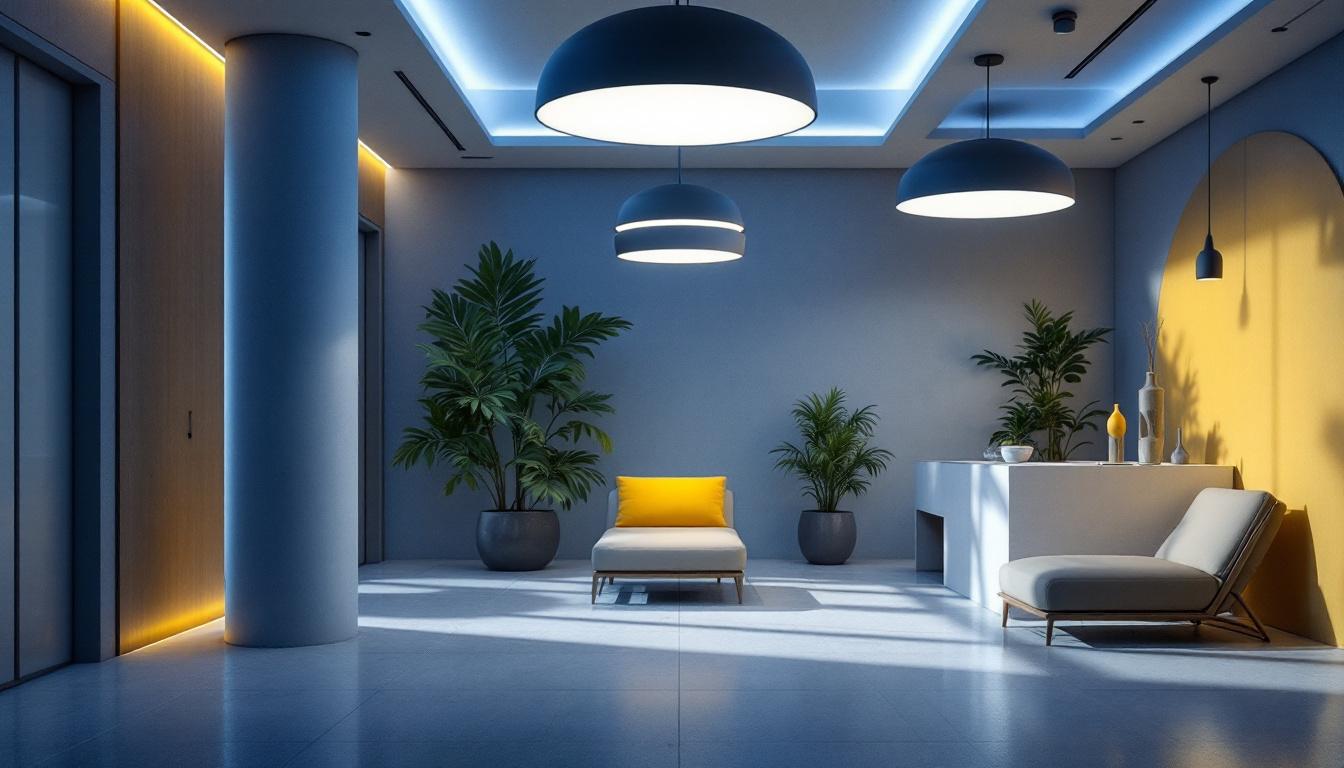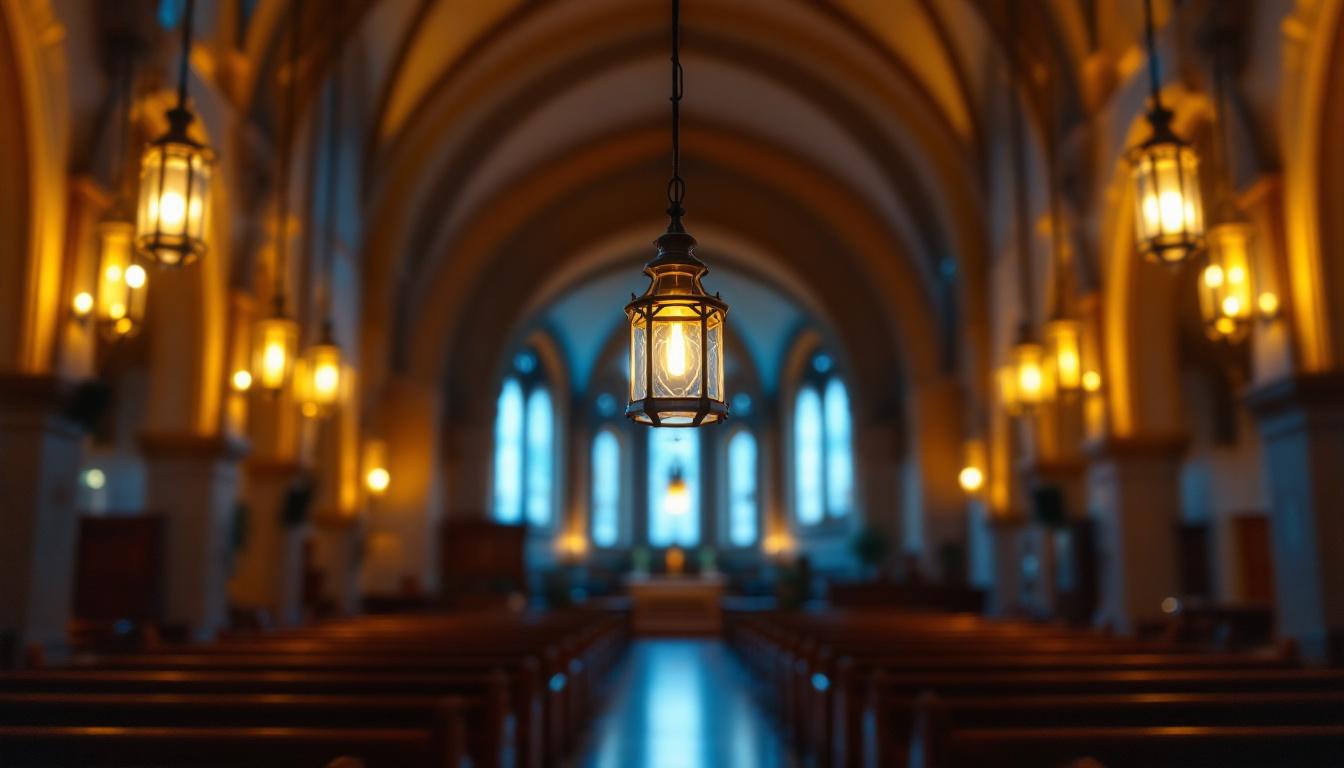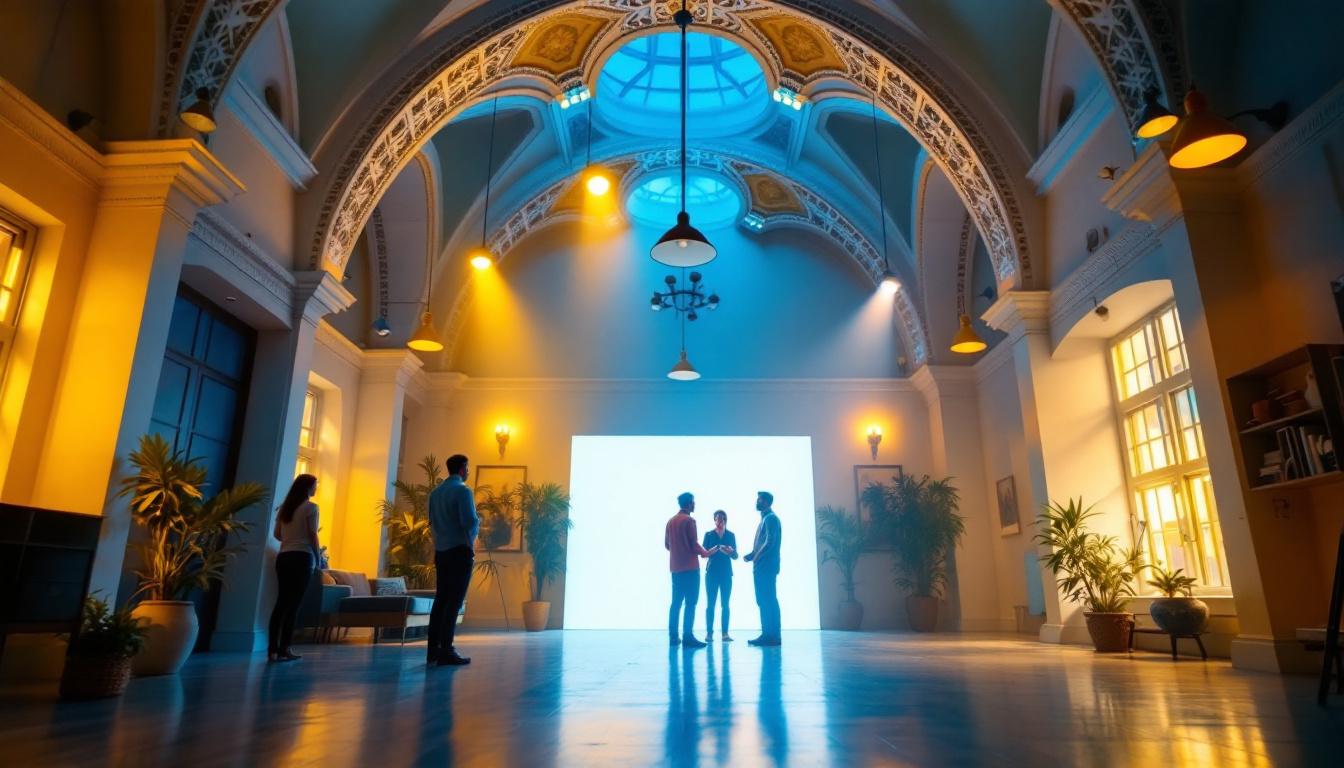
The world of lighting design and installation is undergoing a significant transformation, driven by advancements in technology, sustainability, and evolving consumer preferences. As the industry adapts, lighting contractors must stay informed about the latest trends and innovations to remain competitive and meet the demands of their clients. This article delves into the future of lighting design and installation, exploring key developments that are shaping the industry.
Technology continues to redefine the landscape of lighting design. From smart lighting systems to energy-efficient solutions, the future is bright with possibilities. Understanding these technologies is essential for lighting contractors who wish to provide cutting-edge solutions to their clients.
Smart lighting systems are quickly becoming a staple in modern homes and commercial spaces. These systems allow users to control their lighting via smartphones, tablets, or voice-activated devices. Features such as dimming, color changing, and scheduling enhance the user experience and contribute to energy savings.
For lighting contractors, integrating smart technology into installations requires a solid understanding of various platforms and protocols. Familiarity with systems like Zigbee, Z-Wave, and Wi-Fi can help contractors offer tailored solutions that meet the specific needs of their clients. Additionally, the rise of IoT (Internet of Things) has paved the way for interconnected lighting systems that can communicate with other smart devices, creating a seamless home automation experience. This interconnectedness not only enhances convenience but also allows for sophisticated energy management, where lighting can be adjusted based on occupancy or time of day, further optimizing energy consumption.
Light Emitting Diodes (LEDs) have revolutionized the lighting industry, providing energy-efficient alternatives to traditional incandescent and fluorescent bulbs. Recent advancements in LED technology have led to improvements in brightness, color rendering, and lifespan.
Contractors should stay updated on the latest LED products and their applications. For instance, tunable white LEDs allow users to adjust the color temperature of their lighting, creating ambiance that can enhance productivity or relaxation, depending on the setting. Moreover, advancements in miniaturization have led to the development of ultra-compact LED fixtures that can be integrated into various architectural designs, providing flexibility in aesthetics without compromising on performance. As the market continues to evolve, the potential for smart LED technology that can adapt to environmental changes, such as daylight harvesting, is also on the horizon, allowing for even greater energy efficiency and user comfort.
Human-centric lighting focuses on the impact of light on human health and well-being. This approach considers factors such as circadian rhythms and the psychological effects of different light colors and intensities. By incorporating human-centric principles, contractors can create environments that promote comfort and productivity.
As awareness of the importance of lighting on mental and physical health grows, contractors equipped with knowledge in this area will be better positioned to meet client demands. Implementing solutions that mimic natural light patterns can significantly enhance the quality of indoor spaces. For instance, using dynamic lighting that changes throughout the day can help regulate sleep patterns and boost mood, making it particularly beneficial in workplaces and educational settings. Furthermore, the integration of sensors that adjust lighting based on the time of day or the presence of individuals can create a more responsive environment, ensuring that spaces are not only well-lit but also conducive to the well-being of their occupants. This trend towards prioritizing human experience in lighting design is not just a passing fad; it represents a fundamental shift in how we approach the built environment and its impact on our lives.
With increasing awareness of climate change and environmental issues, sustainability has become a critical focus in lighting design. Lighting contractors play a vital role in promoting energy-efficient solutions that minimize environmental impact. As the world shifts towards greener practices, the lighting industry must adapt to meet the growing demand for sustainable options that align with eco-friendly initiatives.
Energy-efficient lighting options, such as LEDs and solar-powered fixtures, not only reduce energy consumption but also lower utility bills for clients. As energy costs continue to rise, the demand for efficient lighting solutions is expected to increase. Moreover, advancements in technology have led to the development of smart lighting systems that can be controlled remotely, allowing users to optimize energy use based on their specific needs and schedules.
Contractors should familiarize themselves with various energy-efficient products and their benefits. Educating clients about the long-term savings associated with these solutions can help drive sales and foster loyalty. Additionally, offering consultations on how to integrate these technologies into existing systems can further enhance a contractor’s service portfolio, positioning them as knowledgeable leaders in the field of sustainable lighting.
As the industry moves towards sustainability, recycling and waste management practices are becoming increasingly important. Contractors should be aware of proper disposal methods for outdated lighting fixtures and materials, as well as opportunities for recycling components. This includes understanding local regulations regarding hazardous materials, like fluorescent bulbs, which contain mercury and require special handling.
Implementing a recycling program not only reduces waste but also demonstrates a commitment to sustainability, which can enhance a contractor’s reputation in the community. Clients are more likely to choose contractors who prioritize environmentally friendly practices. Furthermore, establishing partnerships with recycling facilities can create a streamlined process for disposing of materials responsibly, while also potentially generating additional revenue through the sale of recyclable components. By actively engaging in these practices, contractors can contribute to a circular economy, where materials are reused and repurposed, ultimately benefiting both the environment and their business.
As lighting design evolves, several trends are emerging that reflect changing consumer preferences and lifestyles. Staying attuned to these trends can help contractors deliver innovative solutions that resonate with clients.
Minimalism continues to dominate design aesthetics, with clean lines and simplicity being favored in both residential and commercial spaces. Lighting fixtures are increasingly designed to complement rather than overpower the overall decor.
Contractors should consider offering a range of minimalist lighting options that align with this trend. Customization options can also appeal to clients looking for unique and personalized solutions.
Biophilic design emphasizes the connection between humans and nature, integrating natural elements into indoor environments. This trend often incorporates natural light, organic materials, and plant life into lighting design.
Contractors can enhance their offerings by incorporating biophilic principles into their projects. For example, strategically placed windows and skylights can maximize natural light, while fixtures that mimic natural forms can create a harmonious atmosphere.
The use of color in lighting design is gaining traction, with clients increasingly seeking ways to influence mood and ambiance through lighting. Color-changing LEDs and programmable lighting systems allow for dynamic environments that can adapt to various occasions.
Contractors should explore options for integrating color and mood lighting into their designs. Offering clients the ability to customize their lighting experience can set a contractor apart in a competitive market.
As the lighting industry evolves, educating clients about new technologies, design principles, and sustainability practices is essential. Engaging clients in the design process can lead to more successful projects and satisfied customers.
Hosting workshops and demonstrations can be an effective way to educate clients about the benefits of modern lighting solutions. By showcasing new technologies and design trends, contractors can foster a deeper understanding of the value they provide.
These events also create opportunities for networking and relationship building, which can lead to referrals and repeat business. Engaging clients in a hands-on manner can enhance their overall experience and satisfaction.
In today’s digital age, providing online resources can significantly enhance client engagement. Creating informative content, such as blogs, videos, and guides, can help clients understand the various aspects of lighting design and installation.
Contractors should consider developing a robust online presence that includes educational materials. This approach not only positions contractors as industry experts but also helps clients make informed decisions about their lighting needs.
Collaboration is key in the lighting industry, as successful projects often require input from various professionals. Lighting contractors should seek opportunities to work alongside architects, interior designers, and electricians to create cohesive designs.
Interdisciplinary projects allow for a more holistic approach to design, ensuring that lighting complements other elements of a space. By collaborating with architects and designers, contractors can contribute valuable insights that enhance the overall aesthetic and functionality of a project.
Building strong relationships with other professionals can lead to more referrals and collaborative opportunities, ultimately benefiting all parties involved.
Participating in industry events and networking opportunities can help contractors connect with other professionals and stay informed about the latest trends and technologies. Engaging with peers can lead to valuable insights and potential partnerships.
Contractors should actively seek out trade shows, conferences, and local networking events to expand their professional network. These connections can lead to new business opportunities and collaborations that enhance project outcomes.
The future of lighting design and installation is bright, filled with opportunities for innovation and growth. By staying informed about technological advancements, sustainability practices, and design trends, lighting contractors can position themselves as leaders in the industry.
Embracing new technologies, educating clients, and fostering collaboration will be essential for success in this evolving landscape. As the demand for energy-efficient, aesthetically pleasing, and health-conscious lighting solutions continues to grow, contractors who adapt to these changes will thrive in the years to come.
Ultimately, the future of lighting design and installation is not just about illuminating spaces; it is about creating environments that enhance the quality of life for individuals and communities alike. By prioritizing innovation, sustainability, and client engagement, lighting contractors can illuminate a path toward a brighter, more sustainable future.
Ready to lead the charge into the future of lighting design and installation? At LumenWholesale, we provide lighting contractors like you with the highest quality, spec-grade lighting products at prices that can’t be beaten. Say goodbye to local distributor markups and hello to a vast selection of reliable, high-performance lighting that meets the most rigorous industry standards. With free shipping on bulk orders, you can stock up on premium lighting solutions without worrying about hidden fees or compromises. Elevate your lighting projects and give your clients the innovative, sustainable, and cost-effective lighting they demand. Discover the perfect fusion of quality, value, and convenience at LumenWholesale – Wholesale Lighting at the Best Value.

Discover the ultimate guide to T5 lights, exploring their benefits, applications, and how they can transform your lighting setup.

Discover why Vanity Warehouse is a game-changer for lighting contractors.

Discover essential insights into church pendant light fixtures with our comprehensive guide tailored for lighting contractors.

Discover the best lighting for cathedral ceilings and learn how to train your team effectively.